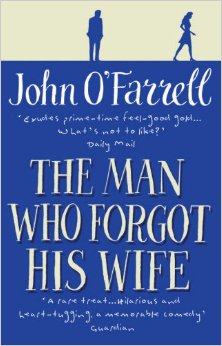Starting things is a particular strength of mine. Finishing on the other hand…that doesn’t always happen. At the beginning of a new year I always enjoy thinking about the year ahead and what I intend to start. This year is no different and I have set myself the challenge of reading a book a week and doing a sketch/painting a week. At the end of the first week I am pleased to say that I am 100% on track, as my goodreads 2016 reading challenge metre happily told me. This time next week will probably be a different story – but for now I’ll indulge in the fact I have finished 1/52 of what I have started.
Sketch of the Week:
I was particularly inspired to paint again after watching a Sky documentary on the winner of the Portrait Artist of the Year award. Christian Hook is an artist with the remarkable ability to empathise with his subjects and then translate this into his portraits and studies. In the weekend I had watched this program at my in-laws, my husband had many cuddles with his childhood best friend, his black labrador Inca. The result of this was a watercolour sketch of Zac and Inca:


It was a challenging paint as I had to get familiar with watercolours again. Not entirely happy with it and poor Inca looks a bit out of shape, but I’m determined to keep up with the painting in the year ahead!
Book of the Week:

This week I read: ‘The Man Who Forgot His Own Wife‘ by John O’Farrell. It’s a humorous read about a man who has a sudden onset of amnesia in the middle of a tube journey in London. Vaughan finds himself without phone, wallet or keys and not a clue of who he is or where he is going. As the story unfolds he starts to piece his life back together, only to find he’s in the middle of a messy divorce.
I came across this book by chance when a friend left it by accident after staying at my house. John O’Farrell is not an author that I had heard of prior, nor was this a book I had seen on the shelves. However, a couple of sentences in and the humorous, sarcastic tone of O’Farrell had won me over.
After reading a few books with a slow start (The Miniaturist being the most recent) I welcomed the fast pace of which the story kicks off. A few pages in and I was already concerned for Vaughan and his sudden flight of memory. However, where I felt the book started off strongly, the second half frustrated me somewhat. O’Farrell’s witty writing seemed to turn into your average chick-lit, with certain scenes towards the end which made me cringe at the end shouting: ‘That would never happen in real life!’. That being said, there are some moments in the book where O’Farrell presents some particularly thoughtful questions to the reader. For example, in one scene Vaughan is in a pub with his best friend Gary, discussing his state of amnesia. He questions whether his new personality post-memory loss is a result of not being able to remember the events that had shaped his character:
“Is it possible that all the character-defining experiences of my life were wiped along with the memories of them? I had a teenage cycling accident which I don’t remember. I still have the scar on my leg. But do I still have all the mental scars of a failed marriage and all the other disappointments and unrealised ambitions, whatever they may have been?” p.309
Passages like this throughout the book show O’Farrell’s ability to touch on something more in his writing. However, for me this was not sustained throughout the story. All in all, it was a laugh-out-loud read, and an enjoyable way to kick of year of reading.
So that’s my first week of reading and painting in 2016. Just 51 weeks to go!

























